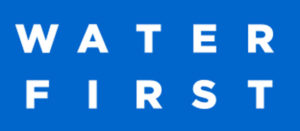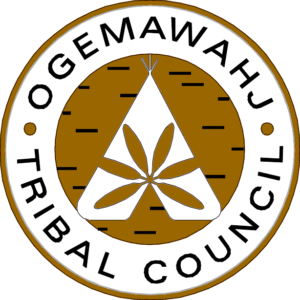Ogemawahj Tribal Council and Water First announce new training internship for water treatment plant operators
Partnership supports technical skills development and community capacity for water resources management

 CHIPPEWAS OF RAMA FIRST NATION (July 13, 2023) — Water First Education & Training Inc., in partnership with Ogemawahj Tribal Council (OTC) and participating communities, is pleased to announce a new water treatment plant operator training program for local Indigenous youth and young adults. Interns from five First Nations will participate in the 15-month paid program to pursue valuable provincial certifications, which help trainees begin their careers in the water field.
CHIPPEWAS OF RAMA FIRST NATION (July 13, 2023) — Water First Education & Training Inc., in partnership with Ogemawahj Tribal Council (OTC) and participating communities, is pleased to announce a new water treatment plant operator training program for local Indigenous youth and young adults. Interns from five First Nations will participate in the 15-month paid program to pursue valuable provincial certifications, which help trainees begin their careers in the water field.
The internship kicked off in June in Chippewas of Rama First Nation with eight interns from communities in the Tribal Council area. During their first week, interns began with learning about and participating in a water ceremony, and then dove into learning about watersheds, water treatment processes, and math and chemistry.
One highlight of the first week was a tour of the Chippewas of Rama First Nation water distribution system and the drinking water treatment plant. Chad McRae, the Overall Responsible Operator, took the interns on a tour of the distribution system where they got to see the inside of a water tower. This tour gave the interns a greater understanding of underground infrastructure and the conventional water treatment steps, which interns are required to know for their tests.
“On behalf of the OTC Board of Directors, we are thrilled to welcome this amazing opportunity to partner with Water First to train our Nation’s members in Water Treatment,” said Mary McCue-King, Executive Director, Ogemawahj Tribal Council. “This type of expertise will provide our members with opportunities to utilize their skills in our communities and also provide a pool of skilled workers that can be utilized in any community, Ontario-wide.”
During the 15-month internship program, each intern will accumulate 1,800 hours of on-the-job experience in water treatment plants, which is a part of the certification process. As part of the program, interns pursue Operator in Training (OIT), Entry Level Course (ELC), and Water Quality Analyst (WQA) certifications, which, along with additional workshops like introduction to mapping and Geographic Information System (GIS), and introduction to environmental water, can lead to work in both drinking water treatment and environmental water careers.
“Local, qualified personnel are critical to ensuring sustainable access to safe water,” said John Millar, executive director at Water First. “Through the Drinking Water Internship collaboration with Ogemawahj Tribal Council, interns gain important skills and experience towards future careers in the water sciences, as well as employability skills, and access to an Alumni Network. We are excited to be embarking on this partnership with Ogemawahj Tribal Council and supporting the interns on their education and employment journeys.”
The OTC Water First Internship is partly funded through Ogemawahj Tribal Council, member First Nation resources, and the Ministry of Labour, Immigration, Training and Skills Development, together with the support of Water First’s donors. This collaboration will support the OTC in training future water operators and in increasing local, technical capacity and autonomy in the water management field for today and for generations to come.
Water First has already successfully implemented four internship partnerships, with the fourth internship approaching graduation in the fall of 2023. To date, through Water First’s Drinking Water Internship Program, 48 interns from 31 Indigenous communities have passed their Operator in Training exams and logged approximately 81,000 hours working in local water plants and attending workshops.
“I joined because I was seeking an opportunity to become involved in my community, and also to learn new skills,” said Kyle Porter, an intern in the North Shore Tribal Council internship from Garden River First Nation. “Personally, I find that being able to contribute to the community I belong to brings me closer to my family and friends.”
“I initially joined the internship program because it lined up with my interest in environmental science, and for the opportunity to grow in my career and have stable employment,” said Laura Mallinson, an internship graduate from Nipissing First Nation.” The training and certifications open doors to so many opportunities. In the community, having more local people trained as water operators means we can do more preventative maintenance and daily tasks, and not just react to issues. There are more trained people who can help keep the water flowing.”
Sustainable access to safe, clean water in Indigenous communities in Canada continues to be a critical issue. In Canada, 14 per cent of First Nations are affected by a drinking water advisory; in Ontario, it’s 25 per cent. The challenges are complex and layered. Communities may face issues relating to infrastructure, source water quality, or people to manage water systems – or more than one of these issues at a time. Water First works with Indigenous communities that have identified education and training as part of their solution to the water crisis. Safe water needs skilled people.
About Ogemawahj Tribal Council:
The Ogemawahj Tribal Council provides superior professional and technical services to its six member First Nations: Alderville, Beausoleil, Georgina Island, Moose Deer Point, Rama, and Scugog Island. The Board of Directors is comprised of the Chief and one Elder from each member community. The Executive Director and Board of Directors provide direction to the organization in its strategic planning, capacity and policy development. To assist in these activities, the Tribal Council maintains highly skilled technical staff to support its efforts in helping their communities to prosper. Learn more: https://www.ogemawahj.on.ca.
About Water First Education & Training Inc. (Water First):
Water First is a registered Canadian charity that works alongside Indigenous communities to address water challenges through education, training and meaningful collaboration. Since 2009, Water First has collaborated with more than 70 Indigenous communities located in the lands now known as Canada while supporting Indigenous youth and young adults to pursue careers in water science. Learn more: www.waterfirst.ngo.
For more information, please contact:
Ami Gopal
Director of Development and Communications
Water First
1-905-805-0854
ami.gopal@waterfirst.ngo
Mary McCue-King
Executive Director
Ogemawahj Tribal Council
249-385-6072
MMcCue-King@ogemawahj.on.ca

